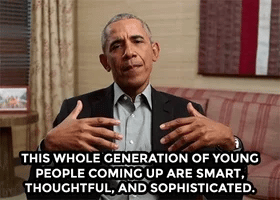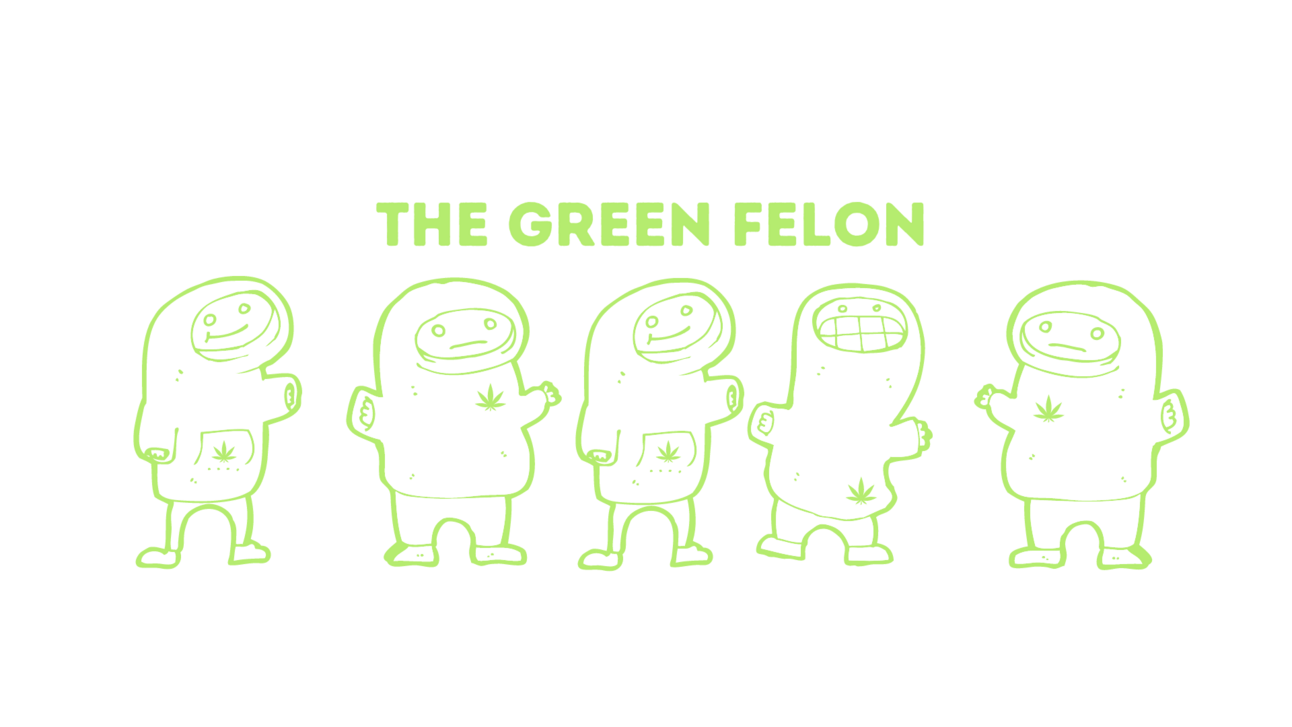
News 📔 Highlights:
Cannabis 🟩 Surpasses Alcohol in Daily Use: In 2022, daily or near-daily marijuana use in the U.S. 🇺🇸 exceeded that of alcohol for the first time, with 17.7 million users.Vox
Health Warnings 🚭 Influence Alcohol Consumption: A warning from the U.S. Surgeon General linking alcohol to cancer has led to decreased alcohol 🍹 consumption among younger generations.Business Insider
Pandemic Accelerates 🚴 Cannabis Adoption: The COVID-19 pandemic saw a significant increase in marijuana usage, as individuals turned to cannabis 🫑 for relaxation and coping with stress during lockdowns. The Guardian

Quick Read 📕:
Health-Conscious Euphoria 🧬: Millennials and Gen Z are replacing alcohol with cannabis due to its perceived wellness benefits, minimal side effects, and alignment with holistic health ❤️ trends.
Cost-Effective Relaxation 💳: Cannabis offers a more economical path to leisure compared to alcohol 🍸, especially for financially constrained younger generations navigating inflation and student debt.
Social Media Optics 📸: Weed carries a curated, sophisticated digital aesthetic, while alcohol is increasingly viewed as outdated 📆 or socially embarrassing in online narratives.
Emotional 🥰 Regulation Strategy: Cannabis is favored for its anxiolytic properties, helping younger users 🧑🎤 manage anxiety and overstimulation in a high-pressure, hyperconnected world.
Ethical Rejection of Norms 🧭: The preference for marijuana reflects a broader moral shift 💹, with younger users rejecting alcohol’s legacy institutions in favor of a plant perceived as politically and ethically progressive.

Why Millennials and Gen Z Prefer Weed 💚 Over Alcohol 🥃: A Generational Shift in Substance Culture
In the hallowed halls of generational analysis, few behavioral shifts have sparked more interest—or mild panic 😱—than the growing cannabis 🪴 preference among Millennials and Gen Z. While Baby Boomers might still reach for a glass of Merlot 🍇 after a long day, their descendants are more likely to roll a joint or dose a gummy 🍬 instead. But this isn't just about getting high; it's about health ⚕️, social identity, economics 💵, and an evolving moral compass that’s reshaping the very definition of "recreational substance use."
Regular alcohol use, it just doesn't fit into [Gen Z's] health-oriented paradigm.”
The Generational Data Breakdown 📊
Let’s begin with the numbers—because while opinions may be hazy 🌫️, statistics are precise. According to data from multiple market intelligence sources, cannabis use among Americans aged 18–34 has increased steadily 📈 over the past decade. Simultaneously, alcohol consumption is either plateauing or decreasing 📉 in this same age bracket.
Here's a quick comparative snapshot:
Age Group | Cannabis Usage ↑ | Alcohol Consumption ↓ |
|---|---|---|
Gen Z (18–26) | 44% (weekly use) 🌱 | Down 21% since 2019 🍺 |
Millennials (27–42) | 38% (weekly use) 🧪 | Down 18% since 2015 🍻 |
Gen X & Boomers | 17% (occasional) 🍂 | Minimal change 🍷 |
This divergence is not incidental. It is a cultural migration 🚙—a rebellion of sorts, rooted in science, safety, and shifting self-concepts.
Healthier Highs: Cannabis vs. Hangovers 🤕
One of the most resonant motivators among younger consumers is health consciousness 🧘♂️. In a wellness-driven society where kombucha 🧉 and cold plunges have become mainstream, cannabis represents a cleaner, more "aligned" alternative to alcohol. Hangovers, after all, are an evolutionary embarrassment 🤢—and Gen Z, raised on WebMD and TikTok diagnostics, is over it.
Alcohol’s association with liver damage 🩺, weight gain 🧁, and impaired cognition has rendered it a less desirable indulgence. In contrast, cannabis offers euphoric effects 🌈 without the same bodily aftermath. For many, it’s the plant-based version of minimalism—intoxicating, yes, but without the 2 a.m. regret or dehydration headache 💧.
Interestingly, the perception 👀 that weed is "natural" makes it an ethically neutral indulgence for generations obsessed with labels like organic, non-GMO, and cruelty-free 🐰.

Economics, Accessibility, and Legalization 📜
It’s hard to overlook the role of economics 💰 in the weed-vs-alcohol debate. While a decent bottle of liquor might run you $40, a cannabis edible 🍠 can cost under $10 and last for multiple sessions 🕰️. In the gig economy—where financial flexibility is a myth for many—cannabis is simply more cost-effective.
Legalization 👮♂️ has also played a pivotal role. The regulatory shift in over 24 states has created a booming legal market that offers an array of products, from tinctures to vapes 🫧. This has de-stigmatized usage while making it more user-friendly. The dispensary experience, complete with budtenders and QR-coded lab tests 📲, feels more like a wellness boutique than an illicit transaction in a dim alleyway 🌒.
Weed Is Cool 😎, Booze Is Cringe
For Millennials and Gen Z, social media isn't just a pastime—it’s a mirror 🪞for self-branding. Drinking 🥤 to excess? That’s for frat bros and washed-up reality TV contestants. But cannabis use—especially the kind paired with mindfulness 🧠 or creativity 💫—is perceived as mature, elevated, and ironically “high functioning”.
Online 🖥️ content about cannabis is not only normalized but glorified: think ASMR joint rolling, aesthetic dispensary hauls, and reels of stoned self-care routines 🛁. Alcohol, in contrast, is often associated with sloppy mistakes and regrettable exes. There’s an emerging aesthetic of intentional inebriation—and weed fits the brief perfectly 📖.

Cannabis 🥗 as a Coping Mechanism: Anxiolytic in the Age of Anxiety 😵💫
Millennials and Gen Z live in an anxiety-saturated world—climate change 🌪️, economic precarity, political instability 🏛️, and existential dread 😶🌫️ are practically baked into their daily scroll. Alcohol, a depressant that can intensify negative emotions, offers temporary escape 🎢 at best—and emotional ruin at worst.
Cannabis, on the other hand 🖐🏾, is marketed and perceived as an anxiolytic 🌼. For younger users, it isn’t just about getting stoned—it’s about microdosing calm in a chronically overstimulated society. CBD 🐸 and low-THC strains have surged in popularity for precisely this reason.
Intergenerational Judgment and the New Morality 🧑⚖️
One might assume this shift is purely pharmacological. Not so fast 🐢. There’s an ethical rebellion underway—an anti-authoritarian undercurrent flowing just below the surface 🌊. Millennials and Gen Z witnessed the hypocrisy of the War on Drugs 📺, saw alcohol monopolize media as “harmless fun,” and grew up watching both industries navigate scandal and addiction fallout 🎭.
To them, choosing 👉 cannabis is not just a lifestyle decision—it’s a political and philosophical one. They aren't just rejecting alcohol; they’re rejecting the institutions, expectations, and moral inconsistencies that propped it up for decades.

Is Alcohol Headed for Obsolescence? 🪦
The cannabis 🌴 revolution isn't just gaining momentum—it’s rewriting the rules of modern recreation 🎮. With each passed bill, each TikTok review, and each meditation session aided by a 5mg gummy, Millennials and Gen Z are signaling a major cultural pivot. This isn’t a phase; it’s a fundamental reorientation of pleasure 🌟.
From health-conscious choices and social 👬 media aesthetics to economic pragmatism and cultural ethics, the preference for weed over alcohol is deeply multidimensional 🧩. It’s funny, really—what once was whispered in basements is now legislated in boardrooms and discussed in therapy sessions 🛋️.
And while older generations 👨🦲 may continue to pour another glass 🍸 and reminisce about “real partying,” the youth are curating their highs with precision, personalization, and a pinch of political philosophy 🧷.
Will the liquor store soon share a shelf with the VHS tape 📼 and rotary phone ☎️—outdated relics of a pre-cannabinoid era 🗿?
👄 Eat Clean 🍖

The information provided in this newsletter is for informational purposes only and does not constitute medical, legal, or professional advice. Always consult with a qualified professional before making any decisions based on the content shared here.

